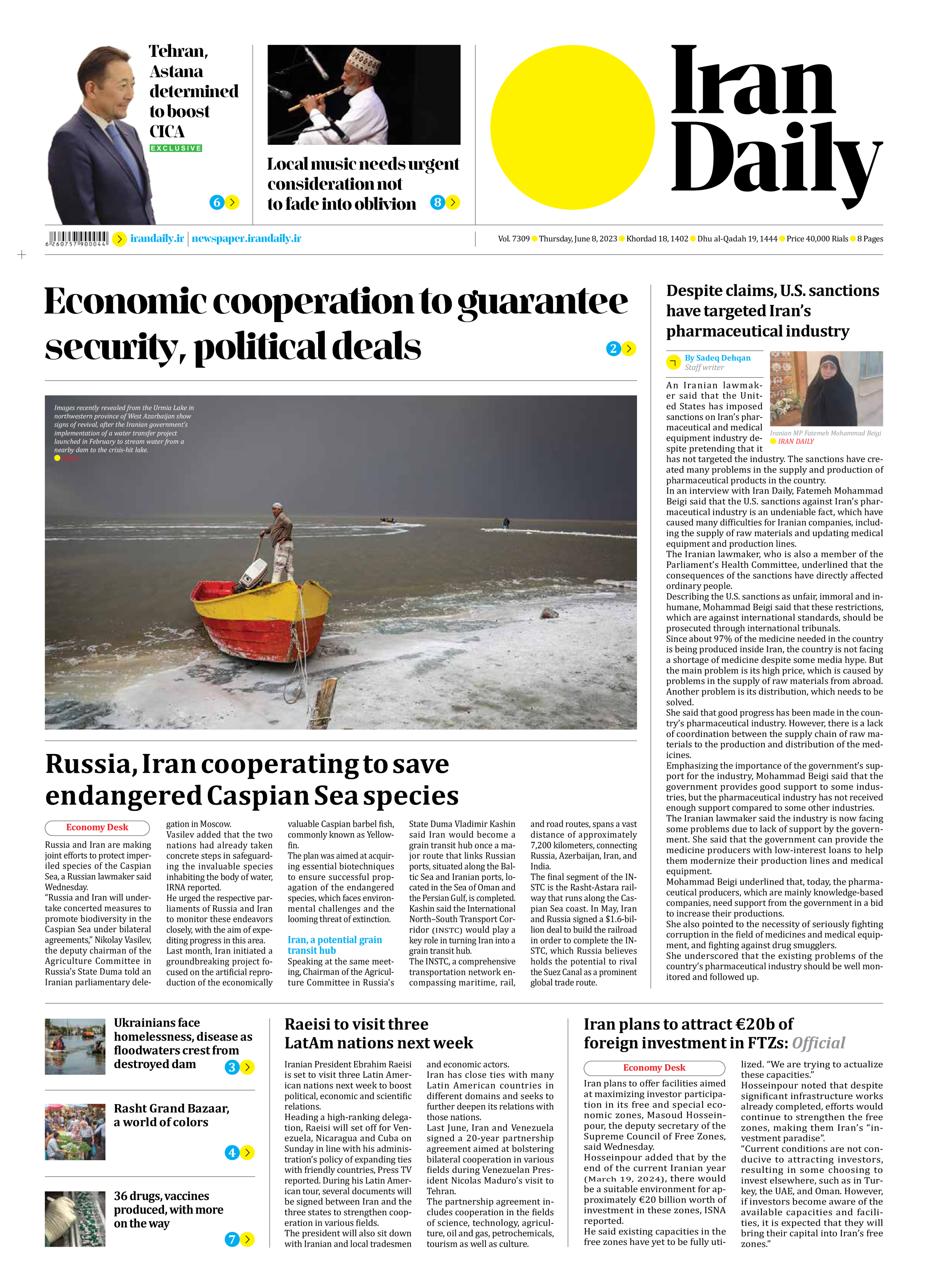
Economic cooperation to guarantee security, political deals
By Ebrahim Beheshti
Staff writer
The West Asian region has undergone a paradigm shift in recent months, as a response to the adverse experiences of confrontational security approaches and the intrusive intervention of extra-regional countries, coupled with disagreements and misunderstandings. A novel approach emphasizing de-escalation and interactivity has taken root. This positive development was instigated by the restoration of diplomatic ties between Iran and Saudi Arabia, followed by the cessation of the war in Yemen, the readmission of Syria into the Arab League, and the announcement of Tehran and Cairo’s desire to normalize relations, among other things.
Naturally, efforts to resolve misunderstandings and disputes begin with the security phase before proceeding to the political and diplomatic phases. In fact, the dialogue between Tehran and Riyadh commenced with representatives from their security apparatuses before proceeding to the diplomatic phase and the reopening of embassies.
A fundamental question now arises that is whether the initiatives aimed at détente ought to be confined solely to the security and political realms or should economic cooperation also be incorporated into the mix?
Over the past few years, political and security disputes have stalled economic collaboration between nations, and some neighbors, despite having enormous economic potential, have failed to define mutual economic interests bilaterally or multilaterally.
However, in this new era of rapprochement, a remarkable opportunity emerges for regional countries to establish joint economic interests and projects amid enhanced security and political stability. It can be argued that promoting economic cooperation among regional nations will contribute toward guaranteeing and stabilizing security and political agreements.
Hamidreza Asefi, the former spokesman of Iran’s Foreign Ministry, underscored the need to expand economic cooperation following the normalization of security and political relations. In an interview with “Iran Daily,” he stated, “Naturally, the process of regional de-escalation in the security and political realms will not be confined solely to these spheres, and countries will proceed to the stage of economic cooperation after having gone through these preliminary stages.”
Behrouz Mohebbi, a member of Iran’s parliament, shed light on how the security approaches and wars of attrition surrounding Iran are among the policies of some major powers that are aimed at undermining the Islamic Republic, reducing the chances of Tehran’s economic cooperation with its neighbors, and ultimately destroying it. He added that several regional countries have now come to realize that their national interests have been subordinated to the interests of foreign interventionist powers.
The lawmaker stressed that sustainable benefits for the region could only be achieved through economic relations since shared economic interests bring nations closer. Consequently, Mohebbi emphasized that “developing economic ties not only strengthens regional security and political alliances but is also a necessary step toward establishing comprehensive relations that extend beyond the security and political realms to the economic sphere.”
The question remains whether regional nations possess adequate capabilities to fulfill each other’s needs through economic cooperation. Asefi responded positively, stating that countries in the region have varying strengths: some hold significant capital, others have commendable potential in agriculture, whilst several excel in human capital and scientific growth. Additionally, certain countries possess superior technological capabilities compared to their peers.
Asefi argued that these capacities can foster mutual benefits by contributing to regional prosperity and progress, given the right conditions of economic cooperation. He also highlighted Iran’s strategic transit location as a crucial advantage for the neighboring countries, particularly the north-south corridor, which could serve as a safe and economical route for goods transportation.
He maintained that fostering economic relations and defining mutual economic interests among regional countries will undoubtedly provide solid support for the stability of security and political agreements.
Like the former spokesman, Mohebbi is optimistic about the relative strengths of the regional nations and their potential contributions to each other’s economic prosperity through cooperation and interaction.
He argued that beyond its strategic geographic location for transit by rail, sea, and air, Iran can lend significant expertise in technology, industries, and skilled manpower to neighboring countries and the wider region. Furthermore, he added that “other countries possess substantial financial resources, allowing them to invest in large-scale economic projects abroad.”
Given this assessment, it is imperative that regional nations expedite the process of economic cooperation. Doing so would not only stabilize security and political alliances, but also result in shared interests as a consequence of de-escalation and interactivity in the region. Failing to act would be a missed opportunity for all parties involved.







